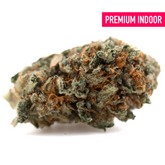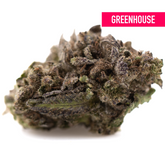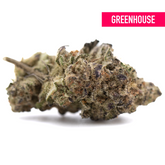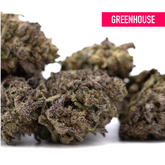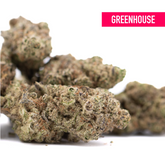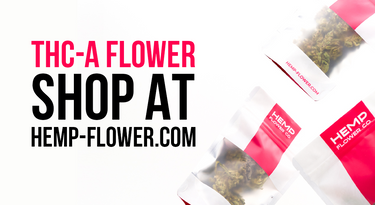California THCA Wholesale: Navigating the Golden State's Hemp Market

California has long been at the forefront of cannabis innovation, and the thca flower wholesale california market is no exception. As retailers and distributors seek compliant, high-quality hemp products, understanding the nuances of wholesale thca flower in the Golden State has become essential for business success.
The West Coast hemp industry has experienced exponential growth over the past several years, with THCA products emerging as one of the most sought-after commodities in the legal cannabis space. California's unique position as both a regulatory trendsetter and agricultural powerhouse creates an ideal environment for businesses looking to enter or expand in the wholesale thca market.
Whether you're an established dispensary looking to diversify your inventory or a new retailer entering the hemp space, navigating California's complex regulatory landscape and supplier network requires careful consideration. This comprehensive guide will walk you through everything you need to know about succeeding in California's THCA wholesale market, from compliance requirements to sourcing strategies and profit optimization.
Understanding THCA: The Legal Landscape in California
THCA (tetrahydrocannabinolic acid) exists in a unique legal space that continues to evolve. As the non-psychoactive precursor to THC, thca wholesale flower falls under federal hemp regulations when it contains less than 0.3% Delta-9 THC by dry weight. However, California's regulatory framework adds additional layers of compliance that wholesalers and retailers must navigate carefully.
The Federal Framework
Under the 2018 Farm Bill, hemp and hemp-derived products containing less than 0.3% Delta-9 THC on a dry weight basis are federally legal. THCA, being the acidic precursor to THC that exists naturally in raw cannabis plants, technically falls within this definition. This creates a legal pathway for wholesale thca products to be produced, distributed, and sold across state lines, provided they meet specific testing requirements.
However, the interpretation and enforcement of these regulations vary significantly at the state level, making California's specific requirements crucial for anyone operating in this market.
California's Hemp Program Requirements
California operates its own hemp program under the oversight of the California Department of Food and Agriculture (CDFA). Businesses engaging in wholesale hemp operations must understand and comply with several key requirements:
Licensing Requirements:
- All hemp cultivators must register with the CDFA
- Processors and manufacturers need appropriate state licenses
- Distributors must obtain hemp wholesaler permits
- Retail locations require proper business licenses and permits
Testing Protocols:
- Products must undergo testing at ISO 17025 accredited laboratories
- Testing must verify Delta-9 THC levels remain below 0.3%
- Additional testing for heavy metals, pesticides, and microbial contaminants
- Batch-specific Certificates of Analysis (COAs) must be available
Labeling and Packaging:
- Clear identification of hemp-derived products
- Cannabinoid content disclosure
- Warning labels and proper child-resistant packaging
- No medical claims or FDA-unapproved health statements
The regulatory environment continues to evolve, making it crucial to work with reputable wholesale hemp farms and suppliers who maintain strict compliance standards. Staying current with regulatory changes can mean the difference between a thriving business and costly violations.
Sourcing Premium THCA Flower Wholesale
California's diverse climate zones and agricultural expertise make it home to some of the nation's premier wholesale hemp producers. From the Emerald Triangle's ideal growing conditions to the Central Valley's large-scale agricultural operations, the state offers unparalleled access to quality THCA flower.
Quality Indicators to Prioritize
When evaluating potential wholesale thca flower suppliers, several quality indicators should guide your decision-making process:
Laboratory Testing and Documentation: The Certificate of Analysis (COA) serves as your primary quality assurance tool. A comprehensive COA should include:
- Complete cannabinoid profile showing THCA percentages
- Delta-9 THC verification below legal limits
- Terpene analysis for strain verification and quality assessment
- Heavy metal screening (lead, arsenic, cadmium, mercury)
- Pesticide residue testing
- Microbial contamination screening (mold, bacteria, yeast)
Cultivation Methods: The growing method significantly impacts both quality and price point:
- Indoor cultivation produces the highest quality flower with superior trichome development, terpene preservation, and visual appeal, commanding premium wholesale prices
- Greenhouse operations offer a middle ground with environmental control while leveraging natural sunlight for more sustainable production
- Outdoor/sun-grown provides the most cost-effective option with larger yields, though quality can vary based on weather conditions and seasonal factors
Visual and Aromatic Assessment: Premium thca wholesale flower should exhibit:
- Dense, properly trimmed buds with vibrant colors
- Abundant trichome coverage creating a frosty appearance
- Strong, distinct terpene aromas indicating proper curing
- Minimal stem and leaf material
- Appropriate moisture content (58-62% relative humidity ideal)
Identifying Reliable Suppliers
The wholesale hemp market includes players ranging from small craft cultivators to large commercial operations. Identifying reliable partners requires due diligence across multiple factors:
Operational Legitimacy:
- Valid state and federal licensing documentation
- Verifiable business history and references
- Professional facilities and equipment
- Proper insurance coverage
- Transparent ownership structure
Supply Chain Capabilities:
- Consistent product availability across seasons
- Adequate inventory depth to fulfill orders reliably
- Multiple strain offerings for product diversity
- Flexible minimum order quantities accommodating different business sizes
- Clear communication and responsive customer service
Business Practices:
- Transparent pricing structures without hidden fees
- Clear terms and conditions for orders and returns
- Sample programs allowing product evaluation before bulk purchases
- Willingness to provide additional documentation as needed
- Positive reputation within the industry
Many successful retailers maintain relationships with multiple wholesale thca suppliers to ensure product diversity and supply chain resilience. This strategy protects against supply disruptions while providing customers with varied strain selections.

California THCA Wholesale Pricing Trends
Understanding current pricing dynamics in the California thca flower wholesale california market helps businesses make informed purchasing decisions and maintain competitive retail pricing.
Current Market Pricing Tiers
The wholesale THCA flower market operates across distinct pricing tiers based primarily on cultivation method and quality:
Premium Indoor Flower:
- Price range: $400-$800 per pound
- Characteristics: Top-shelf quality, high THCA content (20%+), exceptional bag appeal
- Target customers: High-end dispensaries, premium retailers
- Margin potential: 2.5-3x wholesale cost
Greenhouse Cultivation:
- Price range: $250-$500 per pound
- Characteristics: Strong quality-to-price ratio, good potency, consistent production
- Target customers: Mid-market retailers, online vendors
- Margin potential: 2-2.5x wholesale cost
Outdoor/Sun-Grown:
- Price range: $150-$350 per pound
- Characteristics: Value-oriented, variable quality, seasonal availability
- Target customers: Budget-conscious retailers, bulk purchasers
- Margin potential: 1.8-2.2x wholesale cost
Factors Influencing Pricing
Several dynamic factors affect wholesale thca products pricing in California:
Potency Levels: High-THCA strains testing above 20% THCA command significant premiums, sometimes 30-50% higher than mid-potency alternatives. The market has shown consistent willingness to pay more for verified high-potency flower.
Seasonal Supply Fluctuations: California's outdoor harvest season, typically occurring between October and November, brings substantial supply increases to the market. This seasonal influx often results in:
- 20-40% price reductions on outdoor and greenhouse flower
- Increased negotiating leverage for bulk purchasers
- Promotional opportunities for retailers to stock inventory
- Year-round inventory planning opportunities
Market Competition: The increasing number of licensed wholesale hemp farms entering California's market has created competitive pressure on pricing. This competition benefits retailers through:
- More favorable payment terms
- Lower minimum order quantities
- Value-added services included in wholesale pricing
- Improved customer service and support
Volume Discounts: Most hemp wholesaler operations offer tiered pricing structures:
- 1-9 pounds: Standard wholesale rate
- 10-49 pounds: 10-15% discount
- 50-99 pounds: 15-25% discount
- 100+ pounds: 25-35% discount plus additional negotiated terms
Understanding these pricing dynamics allows businesses to optimize purchasing timing and quantities for maximum profitability.
Business Opportunities in California's THCA Market
The wholesale thca flower sector presents multiple revenue streams and business models for entrepreneurs willing to navigate its complexities.
Opportunities for Retailers
Retail businesses represent the front line of the THCA market, directly serving consumers and benefiting from several advantages:
Profit Margins: Properly managed retail operations typically achieve 2-3x markups on thca wholesale flower costs. A pound purchased at $400 wholesale can generate $2,400-$3,600 in retail revenue when sold by the eighth or quarter ounce.
Product Diversification: THCA flower allows existing cannabis retailers, CBD shops, and smoke shops to diversify their product mix with compliant, legal products. This diversification provides:
- Risk mitigation across product categories
- Attraction of new customer segments
- Increased average transaction values
- Enhanced brand positioning
Cross-Selling Potential: THCA flower sales naturally complement related products:
- Consumption accessories (grinders, papers, vaporizers)
- Storage solutions (humidity control, containers)
- Related cannabinoid products (CBD, CBG, CBN)
- Educational materials and merchandise
Growing Consumer Demand: Consumer interest in legal hemp alternatives continues expanding as awareness grows. This trend is driven by:
- Consumers in non-legal states seeking legal options
- Price-conscious customers finding value in hemp-derived products
- Health-conscious consumers preferring plant-based wellness
- Prohibition skeptics exploring legal markets
Distributor and Wholesaler Opportunities
Mid-supply chain businesses operating between farms and retailers occupy a crucial market position with distinct advantages:
Market Expansion: As more retailers enter the wholesale thca space, distributors benefit from increasing demand for their services. The market is far from saturated, with new retail locations opening regularly.
Value-Added Services: Successful distributors differentiate through services beyond basic product movement:
- Custom packaging and branding solutions
- White-label product development
- Regulatory compliance consulting
- Market intelligence and trend analysis
- Just-in-time inventory management
Regional Partnerships: Strategic hemp wholesaler operations develop exclusive relationships with:
- Multiple cultivation operations for diverse product sourcing
- Regional retail chains for volume commitments
- Industry service providers (testing labs, packaging suppliers)
- Logistics companies for efficient distribution
B2B Relationship Building: The distributor role centers on building trusted business relationships across:
- Smoke shops and vape stores expanding into hemp
- CBD wellness retailers adding THCA products
- Online marketplaces seeking reliable suppliers
- Convenience stores and general retailers testing the market
Emerging Market Segments
The California wholesale thca products market continues evolving with new opportunities appearing regularly:
Online Wholesale Marketplaces: Digital platforms connecting wholesale hemp farms directly with retailers are reducing friction in the supply chain. These marketplaces offer:
- Transparent pricing and product comparison
- Streamlined ordering and fulfillment
- Integrated payment processing and documentation
- Review systems building supplier reputations
Direct-to-Consumer Models: Licensed businesses with proper permits are exploring DTC models that:
- Capture full retail margins
- Build direct customer relationships
- Gather valuable consumer data
- Create brand loyalty and recurring revenue
Value-Added Product Manufacturing: Businesses are creating higher-margin products from wholesale thca flower:
- Pre-rolled joints and blunts
- Infused products and edibles
- Concentrates and extracts
- Branded product lines
Education and Content Marketing: Companies investing in consumer education position themselves as industry authorities through:
- Blog content and guides
- Social media engagement
- In-store educational events
- Industry conference participation

Best Practices for THCA Wholesale Success
Success in California's competitive thca flower wholesale california market requires implementing proven best practices across operations.
Due Diligence and Supplier Vetting
Never compromise on supplier verification. Before committing to large orders:
Start Small: Order sample pounds or quarter-pounds from new suppliers to evaluate:
- Product quality against supplier claims
- Shipping and packaging standards
- Communication and customer service
- COA accuracy and comprehensiveness
Verify Documentation: Request and validate all necessary documentation:
- Business licenses and hemp cultivation registrations
- Liability insurance certificates
- Laboratory accreditations and recent COAs
- Business references from other retailers
- Better Business Bureau ratings or reviews
Test Products Independently: Consider sending samples to independent laboratories for verification testing, especially with new suppliers or high-volume orders. The cost of independent testing is minimal compared to the risk of receiving non-compliant or misrepresented products.
Storage and Inventory Management
Proper storage is critical for maintaining product quality and maximizing shelf life of wholesale thca flower:
Environmental Control: Invest in appropriate storage infrastructure:
- Temperature control (60-70°F ideal range)
- Humidity regulation (58-62% relative humidity)
- Light protection (UV degradation prevention)
- Air circulation (preventing mold and mildew)
Inventory Rotation: Implement first-in, first-out (FIFO) inventory systems to:
- Maintain product freshness
- Minimize product degradation
- Reduce waste from expired inventory
- Ensure customers receive optimal products
Packaging Standards: Store thca wholesale flower in:
- Food-grade, airtight containers
- Light-blocking or UV-resistant materials
- Humidity control packs (Boveda or Integra)
- Clearly labeled with strain and date information
Customer Education and Engagement
Many consumers are still learning about THCA and how it differs from traditional cannabis products. Successful retailers invest in education:
Staff Training: Ensure your team can confidently explain:
- What THCA is and how it differs from Delta-9 THC
- The decarboxylation process when THCA is heated
- Consumption methods and best practices
- Legal status and compliance
- Strain differences and terpene profiles
Educational Materials: Provide customers with:
- Printed guides explaining THCA
- QR codes linking to educational content
- Strain-specific information cards
- Responsible consumption guidelines
Transparent Communication: Be honest about:
- Product origins and cultivation methods
- Laboratory testing results
- Effects customers can expect
- Legal compliance and limitations
Relationship Building and Networking
The California wholesale hemp industry thrives on relationships and trust. Long-term success requires investing in connections:
Industry Events: Regularly attend:
- Hemp and cannabis trade shows
- Regional business networking events
- Industry conferences and seminars
- Product launch and tasting events
Trade Associations: Join relevant organizations such as:
- California Hemp Association
- National Hemp Association
- Local chamber of commerce
- Cannabis industry groups
Supplier Partnerships: Build genuine relationships with hemp wholesaler contacts through:
- Regular communication beyond orders
- Feedback on products and services
- Collaborative problem-solving
- Loyalty and consistent business
Community Engagement: Position your business as a community asset:
- Sponsor local events
- Participate in industry advocacy
- Support hemp education initiatives
- Engage authentically on social media
Compliance and Risk Management
Operating in the wholesale thca products space requires vigilant compliance management and risk mitigation.
Regulatory Compliance
Maintain strict adherence to all applicable regulations:
Documentation Systems: Implement robust systems for:
- COA retention and organization
- Purchase order and invoice archiving
- Inventory tracking and batch recording
- Customer transaction documentation
Regular Audits: Conduct periodic internal reviews of:
- Product compliance with testing requirements
- Proper labeling and packaging
- Licensing status and renewals
- Employee training and certification
Legal Counsel: Maintain relationships with attorneys specializing in:
- Cannabis and hemp law
- Business and commercial law
- Regulatory compliance
- Contract review and negotiation
Risk Mitigation Strategies
Protect your business against common industry risks:
Product Liability Insurance: Secure comprehensive coverage for:
- Product defects or contamination
- Customer injury or illness claims
- Legal defense costs
- Business interruption
Quality Control Protocols: Establish rigorous QC processes:
- Incoming product inspection
- Random batch testing
- Customer complaint investigation
- Product recall procedures if necessary
Financial Risk Management: Protect your financial interests:
- Diversify supplier relationships
- Maintain adequate cash reserves
- Negotiate favorable payment terms
- Monitor accounts receivable closely
Reputation Management: Guard your business reputation through:
- Transparent business practices
- Responsive customer service
- Swift issue resolution
- Positive online presence
Marketing Your THCA Wholesale Business
Whether you're a retailer or hemp wholesaler, effective marketing drives growth and profitability.
Digital Marketing Strategies
Navigate the unique challenges of marketing hemp products online:
Content Marketing: Develop valuable content addressing:
- THCA education and benefits
- Industry news and trends
- Strain reviews and guides
- Compliance and legal updates
Search Engine Optimization: Optimize your online presence for:
- Location-specific keywords (California, specific cities)
- Product keywords (wholesale thca flower, etc.)
- Educational content ranking
- Local business listings
Social Media Engagement: Build community while respecting platform policies:
- Focus on education over promotion
- User-generated content sharing
- Industry thought leadership
- Compliant paid advertising where permitted
Email Marketing: Nurture customer relationships through:
- New product announcements
- Educational content delivery
- Exclusive promotions
- Industry news and updates
Traditional Marketing Approaches
Don't overlook proven traditional marketing methods:
Trade Show Presence: Maximize ROI from industry events:
- Professional booth design
- Product samples and demonstrations
- Lead capture systems
- Follow-up protocols
Print Advertising: Target industry publications:
- Hemp and cannabis magazines
- Business journals
- Regional newspapers
- Industry directories
Direct Outreach: Proactively build your customer base:
- Targeted cold calling to qualified prospects
- Trade show follow-up
- Referral programs
- Strategic partnerships
Conclusion: Positioning Your Business for Success
California's thca flower wholesale california market offers tremendous opportunity for businesses that approach it strategically. The state's combination of favorable growing conditions, established agricultural infrastructure, and progressive regulatory framework creates an ideal environment for hemp commerce.
Success in this dynamic market requires balancing multiple priorities:
Quality Focus: Never compromise on product quality. Partner with reputable wholesale hemp farms that prioritize compliance, testing, and cultivation excellence. Your reputation depends on the products you offer customers.
Regulatory Compliance: Stay current with evolving regulations at federal, state, and local levels. Invest in compliance systems and legal counsel to protect your business from costly violations or shutdowns.
Competitive Positioning: Understand your market position and differentiate appropriately. Whether you compete on price, quality, selection, or service, clearly communicate your unique value proposition to customers.
Relationship Investment: Build strong relationships throughout the supply chain. Success in the wholesale thca industry depends more on trust and partnerships than in many other sectors.
Continuous Learning: The THCA market evolves rapidly. Commit to ongoing education about products, regulations, market trends, and best practices. What works today may not work tomorrow.
Financial Discipline: Maintain healthy cash flow, manage inventory efficiently, and protect profit margins. The most successful businesses balance growth ambitions with financial sustainability.
The key to long-term success lies in establishing yourself now as a trusted source for high-quality wholesale thca flower. As the market matures and consolidates, businesses with strong reputations, compliant operations, and satisfied customers will emerge as industry leaders.
California's hemp market is experiencing unprecedented growth, creating opportunities across the supply chain from cultivation to retail. Whether you're sourcing thca wholesale flower for your store, distributing to regional retailers, or operating as a hemp wholesaler connecting farms to customers, the potential for building a sustainable, profitable business has never been greater.
Ready to explore California's THCA wholesale market? Start by:
- Researching licensed suppliers and requesting product samples
- Reviewing COAs and conducting independent testing
- Ensuring your business meets all regulatory requirements
- Building relationships with industry professionals
- Investing in proper storage and inventory management systems
- Developing customer education programs
The Golden State's hemp market is open for business—position yourself now to capitalize on this growing opportunity and build a thriving enterprise in one of the nation's most dynamic cannabis markets.
Frequently Asked Questions About California THCA Wholesale
What is THCA and how is it different from THC?
THCA (tetrahydrocannabinolic acid) is the non-psychoactive acidic precursor to THC found in raw cannabis and hemp plants. While THCA itself doesn't produce intoxicating effects, it converts to Delta-9 THC when exposed to heat through a process called decarboxylation (such as smoking or vaping). This distinction is crucial for legal classification, as wholesale thca flower containing less than 0.3% Delta-9 THC falls under federal hemp regulations.
Is THCA flower legal to sell in California?
Yes, THCA flower is legal in California when it meets federal hemp standards (less than 0.3% Delta-9 THC by dry weight) and complies with California's hemp program requirements. However, businesses must obtain proper licensing as a hemp wholesaler or retailer, conduct mandatory laboratory testing, and adhere to packaging and labeling regulations. Always consult with legal counsel to ensure complete compliance.
What licenses do I need to sell wholesale THCA in California?
Requirements vary based on your business activity:
- Cultivators need CDFA hemp cultivation registration
- Wholesalers/Distributors require hemp wholesaler permits and proper business licenses
- Retailers need appropriate business licenses and may need additional local permits
- Manufacturers processing THCA products need manufacturing licenses
Contact the California Department of Food and Agriculture and your local jurisdiction for specific requirements.
How do I find reliable THCA flower wholesale suppliers?
Finding quality wholesale hemp farms requires thorough vetting:
- Request business licenses and cultivation registrations
- Review recent COAs from ISO-accredited laboratories
- Order samples before committing to bulk purchases
- Check references from other retail customers
- Verify consistent inventory availability
- Assess communication and customer service quality
- Compare pricing across multiple suppliers
Start with small orders to establish trust before scaling up.
What should I look for in a Certificate of Analysis (COA)?
A comprehensive COA for thca wholesale flower should include:
- Complete cannabinoid profile (THCA, Delta-9 THC, CBD, etc.)
- Verification that Delta-9 THC is below 0.3%
- Terpene analysis
- Heavy metals testing (lead, arsenic, cadmium, mercury)
- Pesticide screening
- Microbial contamination testing (mold, yeast, bacteria)
- Testing laboratory information and accreditation
- Batch number matching your product
- Test date (recent testing is preferred)
What's the typical markup for retail THCA flower?
Most retailers achieve 2-3x markups on wholesale thca products. For example:
- Wholesale cost: $400/pound
- Retail by eighth ounce: $25-35/eighth
- Total retail value per pound: $2,400-3,360
- Gross profit: $2,000-2,960 per pound
Actual margins vary based on market positioning, quality tier, local competition, and operational costs.
How should I store wholesale THCA flower?
Proper storage maintains cannabinoid and terpene profiles:
- Temperature: 60-70°F (avoid heat and cold)
- Humidity: 58-62% relative humidity (use humidity control packs)
- Light: Dark storage (UV light degrades cannabinoids)
- Containers: Airtight, food-grade containers
- Air: Minimal air exposure (prevents oxidation)
Well-stored wholesale thca flower maintains quality for 6-12 months or longer.
What's the difference between indoor, greenhouse, and outdoor THCA flower?
Indoor:
- Highest quality and potency
- Superior trichome development and bag appeal
- Tightest environmental control
- Price range: $400-800/pound wholesale
Greenhouse:
- Good quality-to-price ratio
- Natural sunlight with environmental controls
- Consistent year-round production
- Price range: $250-500/pound wholesale
Outdoor:
- Most cost-effective option
- Larger yields but variable quality
- Seasonal availability
- Price range: $150-350/pound wholesale
How much should I order for my first wholesale purchase?
Start small to minimize risk:
- Sample order: 1-4 pounds to evaluate product quality
- Initial stock: 5-10 pounds once you've verified quality
- Regular orders: 10-50 pounds as sales volume justifies
Many wholesale thca suppliers offer flexible minimums for new customers. Avoid overcommitting before understanding your sales velocity and customer preferences.
When is the best time to buy wholesale THCA flower?
Best pricing period: October-November during California's outdoor harvest season, when supply peaks and wholesale prices often drop 20-40%.
Year-round considerations:
- Buy ahead during harvest season if you have storage capacity
- Purchase premium indoor year-round (less price fluctuation)
- Monitor market trends and supplier promotions
- Balance current needs against storage limitations
Can I ship THCA flower across state lines?
Yes, hemp-derived THCA flower meeting federal standards (less than 0.3% Delta-9 THC) can legally ship across state lines under the 2018 Farm Bill. However:
- Verify destination state laws (some states restrict hemp flower)
- Use licensed shipping carriers familiar with hemp compliance
- Include COAs with shipments
- Ensure proper labeling and packaging
- Consider state-specific notification requirements
Always consult legal counsel for interstate commerce questions.
What are the most popular THCA flower strains?
Consumer preferences vary, but consistently popular strains include:
- Indica-dominant: Purple strains, Cookies genetics, Kush varieties
- Sativa-dominant: Haze strains, Diesel genetics, fruity varieties
- Hybrid: Gelato, Wedding Cake, Zkittlez genetics
Stock diverse wholesale thca flower strain selections to appeal to different customer preferences. Terpene profiles often matter as much as strain names for educated consumers.
How do I educate customers about THCA?
Effective customer education includes:
- Clear signage explaining THCA vs THC
- Staff training on product knowledge and compliance
- Printed materials customers can take home
- Honest conversations about effects and expectations
- Sample programs allowing informed purchases
- Online content supporting in-store information
Educated customers become loyal customers who appreciate your transparency.
What insurance do I need for a THCA wholesale business?
Essential coverage includes:
- General liability insurance for business operations
- Product liability insurance for product-related claims
- Property insurance for inventory and equipment
- Commercial auto insurance if delivering products
- Workers compensation if you have employees
Work with insurance providers experienced in hemp and cannabis to ensure adequate coverage. Standard business insurance may exclude cannabis-related activities.
How is California's THCA market expected to evolve?
Market trends suggest:
- Continued growth as consumer awareness increases
- Price competition as more wholesale hemp farms enter the market
- Quality premiums for high-potency, tested products
- Regulatory refinement as the market matures
- Product innovation including value-added offerings
- Market consolidation with leading brands emerging
Businesses establishing strong reputations now will be well-positioned for long-term success in California's evolving thca flower wholesale california market.
